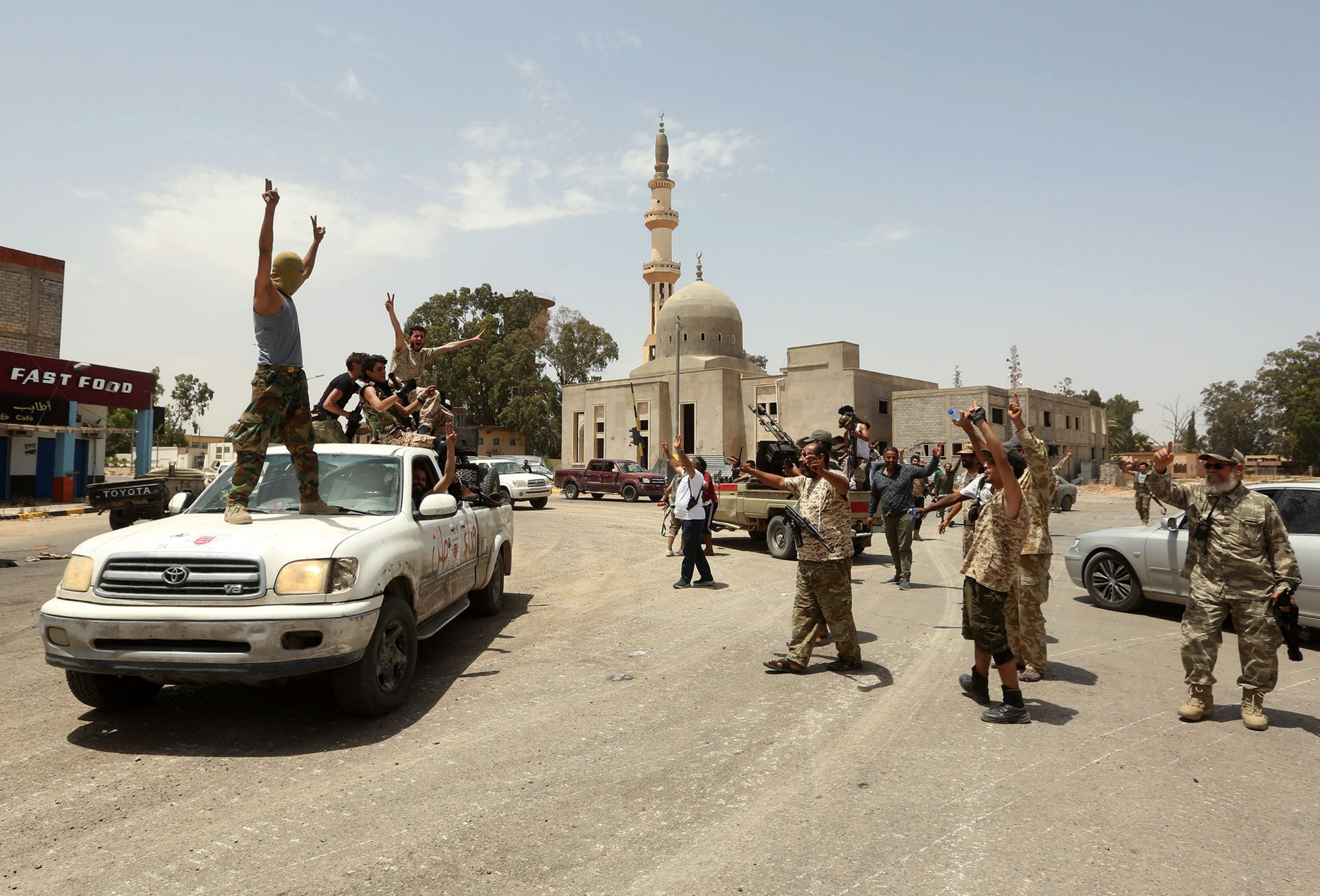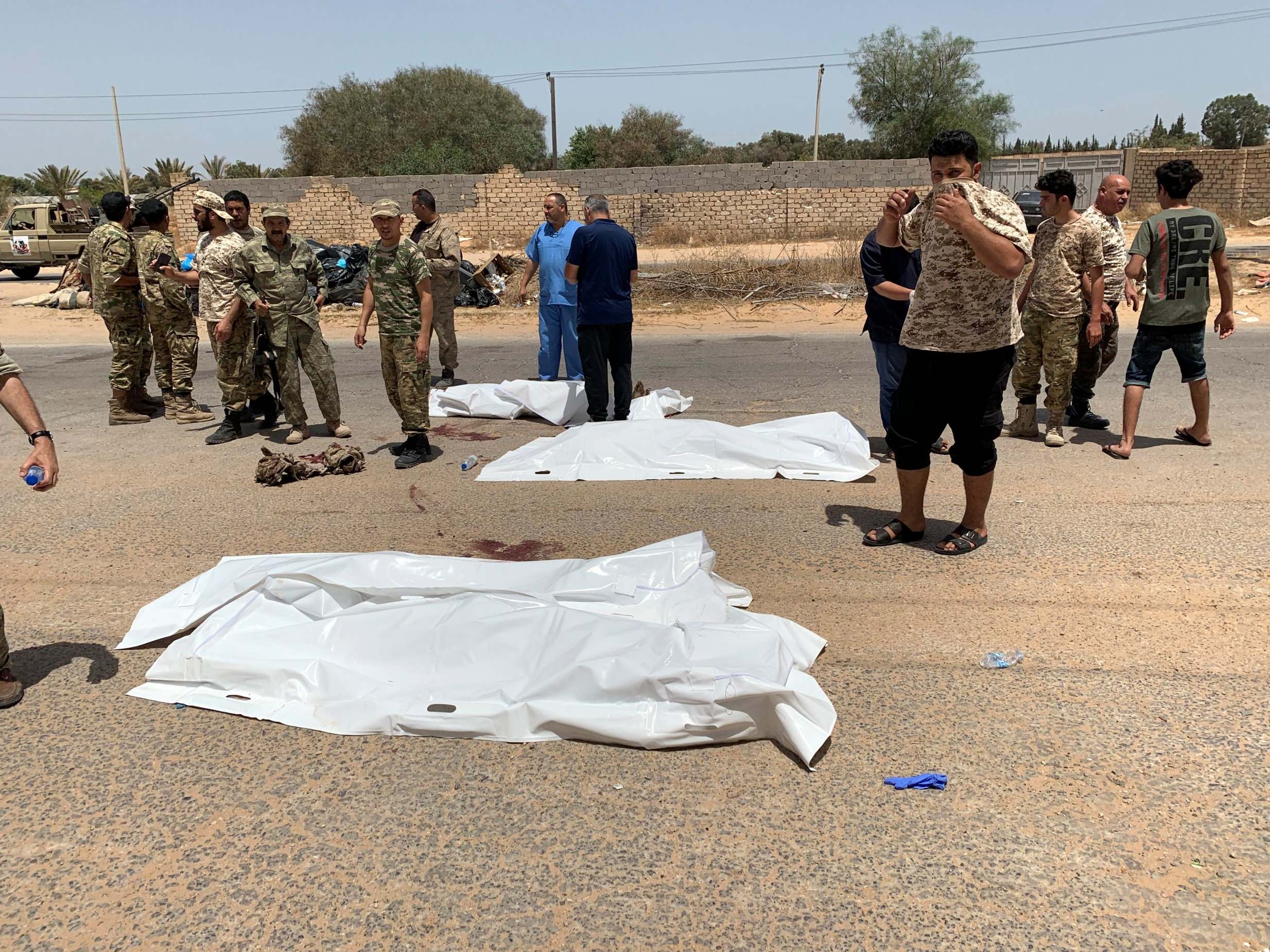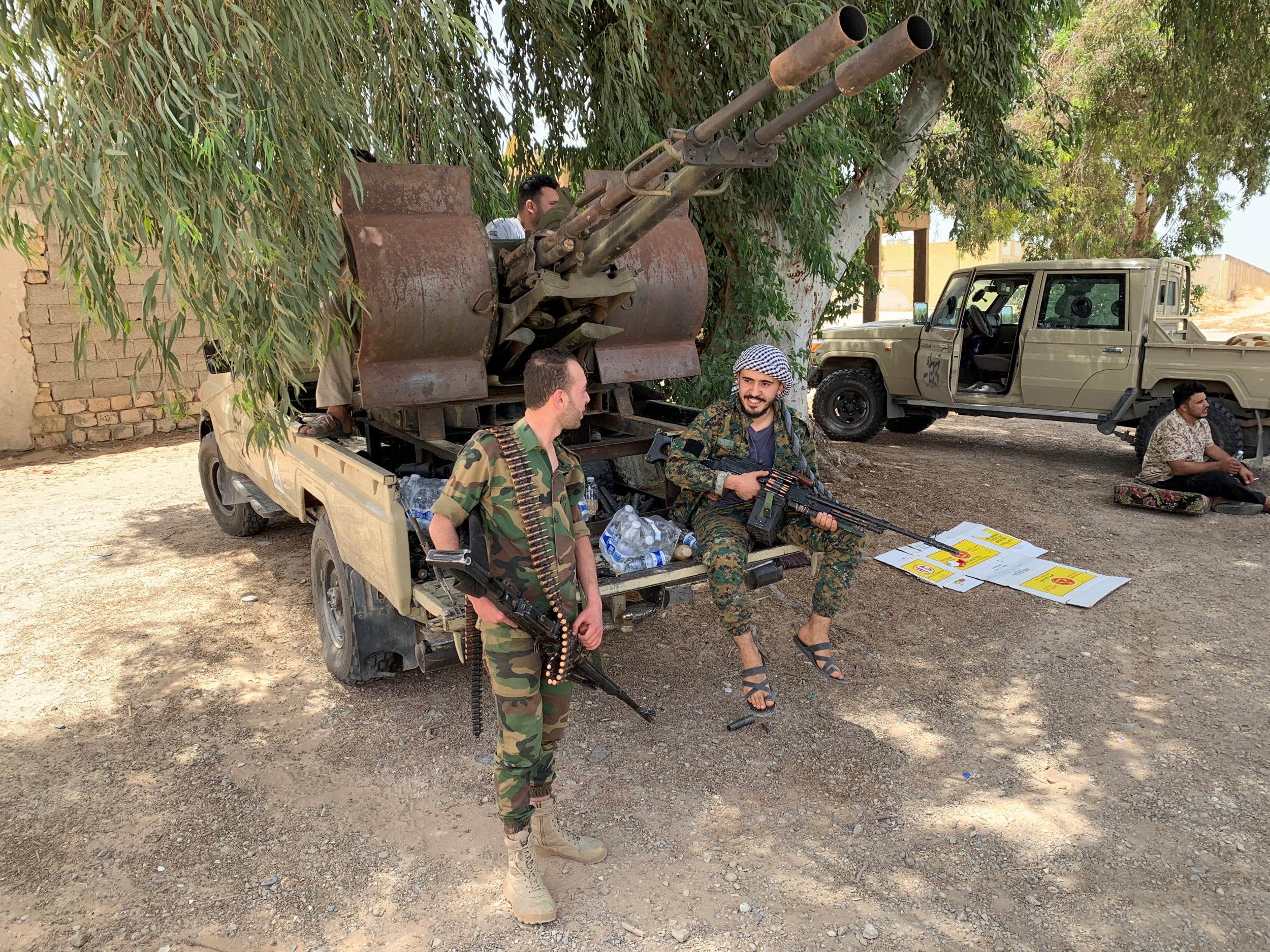‘You have lost your bet’: Haftar and his backers defeated in battle for Libya’s capital
But it is still too soon to declare an end to the war over Tripoli, Borzou Daragahi reports


In a major turn of events in a war that has killed more than 1,000 civilians, the internationally recognised government in Libya announced on Thursday that it had taken full control of the capital, dealing a significant, though perhaps not yet decisive, defeat to a renegade military commander.
It quickly followed the Tripoli-based government’s recapturing of the airport, a severe and symbolic blow for Libyan warlord Khalifa Haftar and his backers in the Arabian Peninsula, Egypt and Russia.
“On this blessed day and after one year of blatant attacks on Tripoli by militias and their supporters, we bring to you the news of the liberation of Tripoli and its surrounding areas a few hours ago in a huge battle,” said Fayez al-Serraj, prime minister of Libya's Government of National Accord (GNA), following a meeting in Ankara with the Turkish president, Recep Tayyip Erdogan.
“I have a message for all the backers of [Haftar],” he said. “You have lost your bet. You were defeated despite all the money and weapons you have sent the war criminal.”
Turkey and its client will now contemplate possible next steps that include making a lunge for Libya’s south or stamping out the last remnants of Mr Haftar’s forces in the west. A top priority, said Mr Erdogan, was maintaining oil exports, which are the lifeblood of Libya’s economy and a key potential strategic interest for Ankara.

“We talked about the strategies that will contribute to the peace and welfare of our Libyan brothers and sisters,” he said. “We will not leave Libya to the mercy of coup makers and legionnaires.”
Pro-Haftar media acknowledged a withdrawal from southern Tripoli by the Libyan Arab Armed Forces, the name of the collection of armed groups fighting for the former CIA asset. The 76-year-old army officer has frustrated the patience of international players, including his own backers.
Libya has been in a state of near-perpetual turmoil since a 2011 Nato-backed armed uprising toppled the longstanding regime of Muammar Gaddafi and initiated a new era of chaos, instability and fragmented governance, with rival authorities laying claim to power in the east and west.
The UN and other international powers, worried about migrants flooding in from Libya across the Mediterranean and the threat of extremist groups taking hold, have been struggling to stitch the country back together under one government and security umbrella, but have mostly failed.
Mr Haftar emerged as a force in 2014, launching a campaign of “dignity” to defeat Islamist-leaning militias that had taken control of much of the country. However, he quickly acquired a reputation as an aspiring dictator himself, and many Libyans regard him as toxic.
Mr Haftar sabotaged impending peace talks and launched a surprise military campaign 14 months ago to seize control of the capital after taking over much of the oil-rich country’s east and south. He was winning the war until Turkey intervened earlier this year with advanced combat drones, anti-aircraft systems, trainers and Syrian mercenaries.
“A year has been wasted, causing much death, suffering, and destruction – all for the ego project of a stubborn septuagenarian on a power trip,” said a senior-ranking western diplomat deeply involved in peace talks, speaking on condition of anonymity. “Now the challenge is for Libyans to de-escalate and return to ceasefire negotiations leading to a comprehensive settlement of the years-long conflict.”
Along with the airport, GNA forces took control of two key areas of the city’s southern suburbs that had been in the warlord’s hands, and reached the outskirts of Tarhuna, the last major pro-Haftar stronghold in the sparsely populated country’s northwest.

Analysts said the loss of the airport and surrounding neighbourhoods represents a severe loss for Mr Haftar. The site itself has been contested since 2011, with rival militias fighting for it and destroying the terminal in 2014. Mr Haftar used the vast site to ferry supplies closer to the heart of the city, and position rockets that hammered the capital.
“Haftar and his allies will no longer be able to launch unguided missiles into residential neighbourhoods and civilian infrastructure,” said Jalel Harchaoui, a North Africa specialist at the Clingendael Institute in the Netherlands. “In that sense, yesterday and today mark a political victory for both the GNA and their Turkish protector.”
The turn in the conflict may have broad international ramifications. Already there has been increased grumbling in Washington about Mr Haftar. On Wednesday the Wall Street Journal cited unnamed officials alleging that Mr Haftar is under US scrutiny for attempting to make oil deals with Venezuela and Iran in violation of US sanctions. His private jet flew to Caracas on 24 April, according to flight tracking data cited by the newspaper.
Both Mr Serraj and Mr Erdogan appeared to rule out allowing Mr Haftar to participate in future discussions. “He does not have the capacity to sit around the stable for solutions,” said Mr Erdogan. “Those who support him will be the biggest handicap in the path towards a solution.”

Mr Haftar has recently drawn the anger of the Pentagon for helping Russia establish an airbase in the central town of Jufrah, a move that the US announced last week. “The Department of State and the Pentagon have been appalled by the way Haftar and the UAE have invited Russia to increase its footprint in Libya,” said Mr Harchaoui.
It is still too soon to declare the war over, said Aya Burweila, a Libya specialist and visiting lecturer at Hellenic National Defence College, who noted that Garabuli and Rawasha, coastal towns to the west of Tripoli, remain under the control of pro-Haftar forces.
“One of the mistakes people make is not talking about the entire region,” she said. “Most of the assets of Libya are in the east. The war is always in flux and you never know what is going to happen. It’s premature to say Tripoli is under GNA control.”
Though Mr Haftar’s backers in Moscow, Abu Dhabi and Cairo may have grown frustrated with his recent string of defeats, there is little evidence that they are pulling back support.
“Militarily, he has failed in Tripoli, and his backers must sense this,” said Anas El Gomati, a founder of the Sadeq Institute, a Libyan-focused think tank. “But I don’t think they’ve given up in Libya. The UAE dropped thousands of tons of military equipment, and is hosting Sudanese and Syrian mercenaries; Russia is establishing a base in central Libya. Their investments have gotten stronger, despite Haftar’s weakness.”
Join our commenting forum
Join thought-provoking conversations, follow other Independent readers and see their replies
1Comments